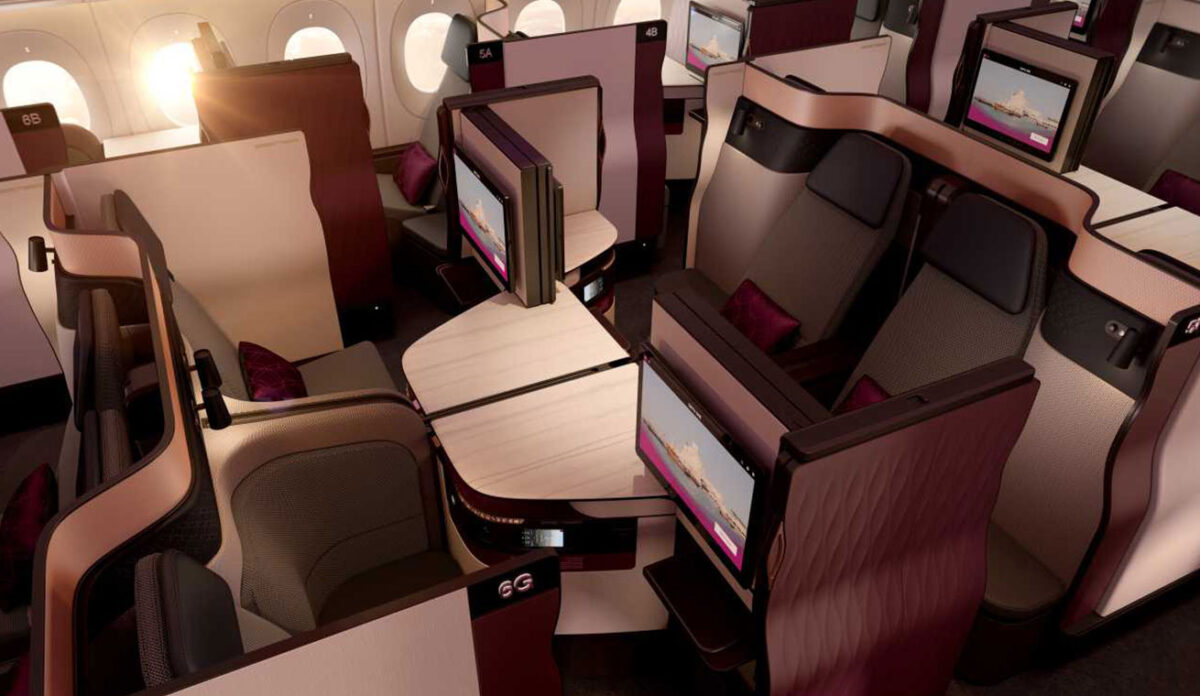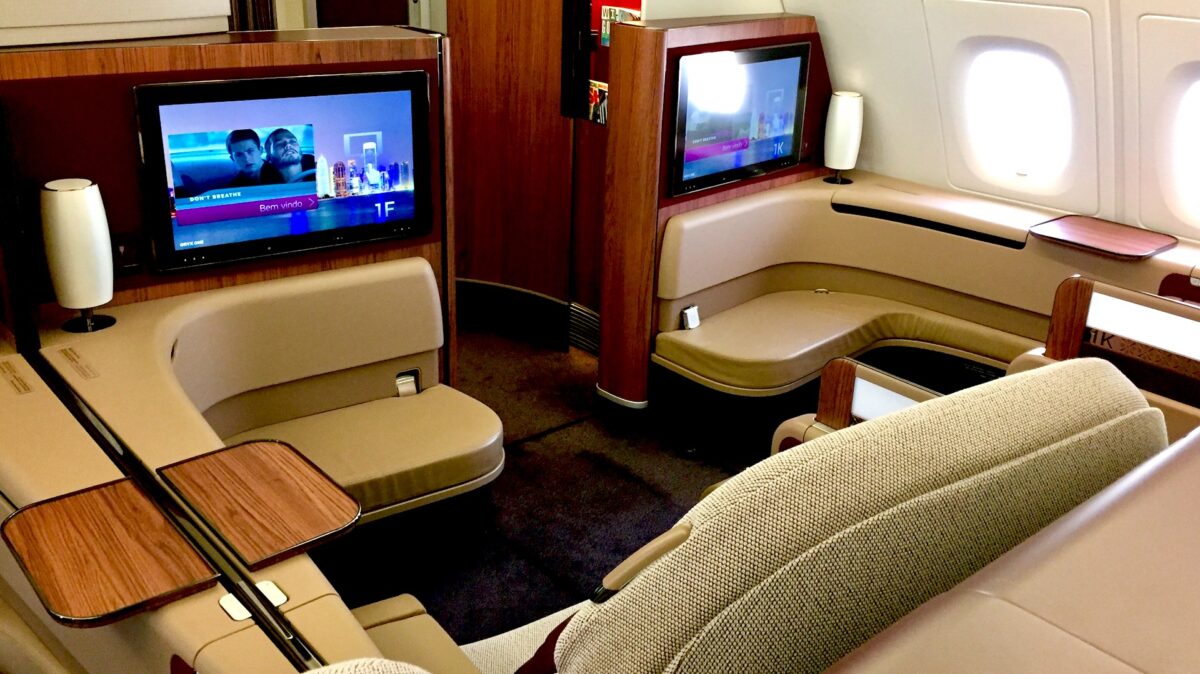Qatar Airways, renowned for repeatedly winning the top prize at the Skytrax World Airline Awards, has announced that it will no longer offer first-class seats on its next generation of long-haul aircraft. This decision comes directly from their CEO, who believes that the investment in luxurious first-class seats does not justify the returns…
The world of air travel is full of surprises — from a man urinating all over business class to disgusting, sock-stuffed seats — but few could have foreseen this curveball from Qatar Airways, one of the world’s most profitable and prestigious airlines, which could mark the beginning of a paradigm shift in the wider industry, which is rapidly changing tact in a post-COVID and increasingly environmentally conscious world.
In a significant announcement, Qatar Airways CEO Akbar Al Baker has declared that the airline will no longer provide first-class seats for its planes in a strategically risky and divergent move that starkly contrasts with other airlines like Lufthansa, Qantas and Air France, who have all doubled down on their high-end offer in recent years.
While Carsten Spohr, CEO of Lufthansa, believes that more travellers are seeking a special treat, creating higher demand for the first-class experience — and, for the record, Lufthansa’s first-class cabins have never been fuller — Al Baker’s rationale stems from his belief that the investment in opulent first-class seating fails to yield sufficient returns, especially considering the immense perks offered in their business class.
WATCH: When you see Qatar’s business class, you’ll understand what the CEO means.
Al Baker puts it this way:
“Why [wouldn’t] you invest in a subclass of an airplane that already gives you all the amenities that first class gives you? I don’t see the necessity.”
Akbar Al Baker, Qatar Airways CEO
For Al Baker, the future lies in business class, specifically the airline’s Q-suite product. His high-stakes vision has led the airline totally exclude first-class cabins from its next-generation Boeing 777X aircraft, which will become the largest in the airline’s fleet once all ten of its Airbus A380s (which still feature eight first-class seats) are eventually retired.
Why Qatar Airways is ditching first class – and why others may follow
In recent years, cabin classes have become significantly more fluid and flexible, with premium economy squeezing in between business and economy seats. First class, on the other hand, has remained somewhat of a gimmick, primarily reserved for corporate clients’ top-tier executives or for passengers looking to indulge in a once-in-a-lifetime travel experience.
It’s also worth pointing out that, in general, airlines make the most money out of selling business class seats as opposed to first class or even economy seats, as the profit margin on business class seats is much larger.

There is a bigger picture at play, however: Qatar Airways faces concerns regarding its supply chain, as shortages of parts and growing backlogs in the production line are impacting new additions to its fleet. Al Baker highlighted the airline’s current shortfall of about fifteen planes of the twenty-five expected to be acquired this year. The issues are specifically affecting the Boeing 787, as well as the Airbus 321neo and A350 models.
Boeing CEO Dave Calhoun has cautioned against quick fixes to alleviate supply-chain constraints, suggesting the aerospace industry could be in for several years of disruption in the wake of the COVID-19 pandemic. It seems Al Baker is in full agreement:
“The vicious circle that is happening is the industry’s biggest challenge… Our growth ambitions will have to be limited due to the shortage of capacity.”
Akbar Al Baker, Qatar Airways CEO
Qatar also seems to be eyeing-up expansion plans in Australia, looking to support new partner Virgin Australia in its long-standing rivalry with Qantas. Though no official discussions have taken place, when asked about a potential investment in Virgin Australia, Al Baker reportedly responded with a wry smile. Currently, Qatar operates a daily flight to all cities in the country except Melbourne, which receives two flights per day.
Not only could this offer be pretty readily increased, given that the airline already has all the necessary infrastructure and vehicles in place for such a move, but it could represent a considerably more meaningful boost to profits than ongoing investment in first-class cabins, which require massive short-term overheads for little short-term return.

Although Qatar Airways faired relatively well during the pandemic — remaining operational on international routes while many airlines ceased flying altogether — it will no likely be looking to make swifter and smarter investments wherever it can to aid growth in an economic climate constricted by supply chain issues and a global cost-of-living crisis.
By focusing on expanding and better serving its economy and business passengers — rather than providing a plush experience for its highest-income travellers — Qatar Airways could also win some easy PR points which, I think it’s fair to say, would be welcomed by many in a sector whose reputation seems increasingly turbulent.
